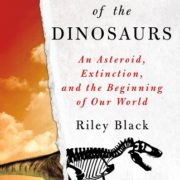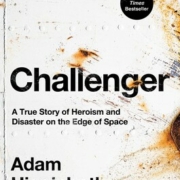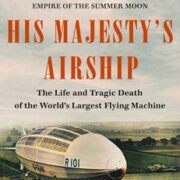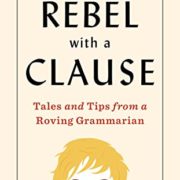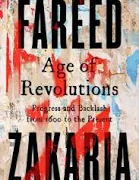River of the Gods: Genius, Courage, and Betrayal in the Search for the Source of the Nile by Candice Millard
The Victorian era conjures much to mind, and it’s often a word salad of Britishness: the Brontë sisters, tea and crumpets, “Dr. Livingstone, I presume?” It can go on and on. Conspicuous consumption had long been in place among the British aristocracy, where the finest of art was displayed to demonstrate one’s perceived cultural superiority. Now, with a vast empire flying the Union Jack, unsuspecting lands were potentially subject to British exploration and consumption. It wasn’t always about dominion. Often there was the want to learn and map what was, to them, the unknown.
And sometimes cultural hubris and genuine craving to know the world via exploration were entwined, as evidenced in River of the Gods: Genius, Courage, and Betrayal in the Search for the Source of the Nile by Candice Millard. A book so expertly written, it becomes almost cinematic when read. It helps that Millard spools together material that almost sells itself. Foremost is Richard Burton, the “genius” part of the subtitle.
Born to a peripatetic British Army officer who wanted his son to have a proper English education, a young Burton experienced both the boarding school and, while living with his father at various worldly outposts, tutors. Wherever he lived, violence was a mainstay, and Burton gave it back in turn. Once he smashed a violin over his music tutor’s head. Eventually serving in the army of the East India Company, Burton cared to be anywhere but England. To the famous line “the vast (British) empire on which the sun never sets,” a young Burton sardonically added “nor rises.”
Burton excelled at languages, a tutor later stating that he “could learn a language running.” (He spoke 24 languages.) Attending Oxford University, he was insufferable to the dons. Millard notes that Burton often didn’t either know or care how others viewed him. This trait would later be of great consequence.
In 1853, and in his early thirties, Burton did the unthinkable and joined the annual pilgrimage to Mecca disguised as a Muslim. To the Christian world, the Hajj was full of mystery as only believers of the Islamic faith were allowed. Discovered nonbelievers were subject to the punishment of death. Millard says of Burton’s audacity for the journey, “It was an undertaking that simultaneously acknowledged what was most sacred to the Muslim faith and dismissed the right to protect it, making it irresistible to Burton, who studied every religion and respected none.”
Burton, having long since mastered Arabic, spent months dying his skin brown with henna. He didn’t have to worry about masquerading the color of his eyes. They were already about as dark as eyes can get. After meeting Burton, author Bram Stoker was so mesmerized it’s said that Burton’s look (all the way down to how Burton spoke, with the flash of the canine tooth) was his mental image during the writing of “Dracula.”
The excursion a success, and gaining him some renown, Burton set about contemplating his next exploration. It didn’t take long. The Royal Geographical Society had announced that finding the source of the White Nile would be answering one of the great geographical questions of the age. Burton, having been on the Nile only once and finding it a “double dullness” of scenery, leapt at the chance to venture into Africa’s interior, writing, “I shall strain every nerve to command it.”
Awarded the command, Burton needed additional military officers to join his party. Through a series of happenstances, Burton chose John Hanning Speke after meeting him at what today is Yemen. Speke was in many ways the opposite of Burton. Speke was firmly a member of the aristocracy. Whereas Burton was bookish and constantly preparing for his outings, Speke was decidedly not studious and seemed to live only to hunt game. But Speke had ostensible uses to Burton: an experienced traveler (by way of the army) with some surveying skills, and an excellent shot.
In 1855, as Burton and his party were commencing their trek into Africa’s interior, a Somali clan attacked their encampment. Speke was stabbed multiple times and Burton was speared in the face, the javelin going through one check and out the other. It’s miraculous they survived. A disaster, the expedition was abruptly over. More than anything, however, it was the resentment Speke developed against Burton that would have lasting significance. The impetus: During the attack, Speke stepped out and then immediately back into a tent, prompting Burton to say, “Don’t step back, or they will think we are retiring.” Speke took this as a charge of cowardice, internalizing the affront. Also, when Burton published his report on their brief expedition, he added some of Speke’s observations without sourcing them. Apparently, this was commonplace, as Speke was a subordinate. No matter, Speke started to turn on Burton.
Given Speke’s lack of knowledge concerning Africa (other than that there were hippopotamuses there he wanted to shoot), it’s surprising that Burton chose him for a return trip. It was woefully underfunded, but Burton made as many supply purchases and local African hires as possible. Millard notes that in England “armchair geographers and gentlemen scientists” were suspect of “native testimony.” Explorers knew better, however. Local knowledge was paramount. And the most beneficial hire Burton made was Sidi Mubarak Bombay, a former slave who was kidnapped as a boy and taken to India. He eventually achieved his freedom and returned to his homeland. Both Burton and Speke would go on to credit him for keeping a disparate caravan of personalities together throughout the 1856-1859 expedition.
Millard keeps the pages turning with tales of their many tribulations. In addition to crocodile-infested waters and the roars of lions at night, there were the columns of safari ants that sent the caravan into a frenzy, Burton journaling that it was “ludicrous to behold.” One night, Speke briefly lit a candle in an attempt to right his tent after a storm. He was immediately beset by black beetles. No amount of frantic gyrations could remove the swarm. Resigned to their presence for the night, and falling into a fitful sleep, he was shocked awake by a beetle burrowing into his ear. Attempting to remain calm, he tried pouring salt, oil, and melted butter into his ear. But the mandibles kept burrowing. In desperation, he stuck a penknife into his ear, killing the tormentor but also rendering him deaf in that ear for the remainder of his life. And then there were the diseases that almost killed Burton and Speke on more than one occasion.
After reaching a lake, the caravan double backed, eventually stopping to resupply. On word that a large body of water lay to the north, Speke and Bombay trekked to find it. Burton was too ill to make the journey; plus, he believed the lake they had just turned back from–but didn’t have the means to fully explore–was the Nile’s source. Reaching the southern end of Lake Nyanza, Speke was certain this was the source of the Nile.
Speke returned to England promising Burton (not yet medically cleared for sea voyage) that he would wait for him before reporting to the Geographical Society. He did not wait, and turned on Burton once and for all, slandering his competence and character. Speke eventually returned to Lake Nyanza, teaming up with Bombay once more, where they found the source of the Nile.
Although he didn’t have the scientific measurements to definitively prove it, Speke believed the matter of the Nile’s source closed, renaming it Lake Victoria. As the years passed, Speke’s vitriol spread to those who had once supported him, which is perhaps why he was goaded into publicly debating Burton, a spectacle that was sure to humiliate Speke. The debate never happened, as Speke died from a self-inflicted gunshot wound the day before the event. Whether it was intentional or an accident is an open question.
Burton would always be perplexed by Speke’s actions. Once he learned of the catalog of grievances Speke had collected against him, he said the matter could have been settled had Speke addressed him directly. Burton could be aloof, but he had thought that, given their shared hardships, he and Speke had an unspoken comradery. But Speke was all British, where being second to just about anyone was not an option. Burton would live out the rest of his days famous and never fully accepting a British aristocracy that didn’t know what to make of him.
Then, and as Millard notes, there were the Africans who were not consulted on whether Burton and Speke should explore their lands at all. Bombay, who had every reason to resist an outsider’s presence, accepted them warmly, nonetheless. And then there were the people already around Lake Nyanza, from the southern inhabitants who believed the water extended to the edge of the world to those in the north who stood and watched as the water flowed into a great river, not knowing there was a whole civilization at the other end racing to find what was already found.
Reviewed by Jason Sullivan


